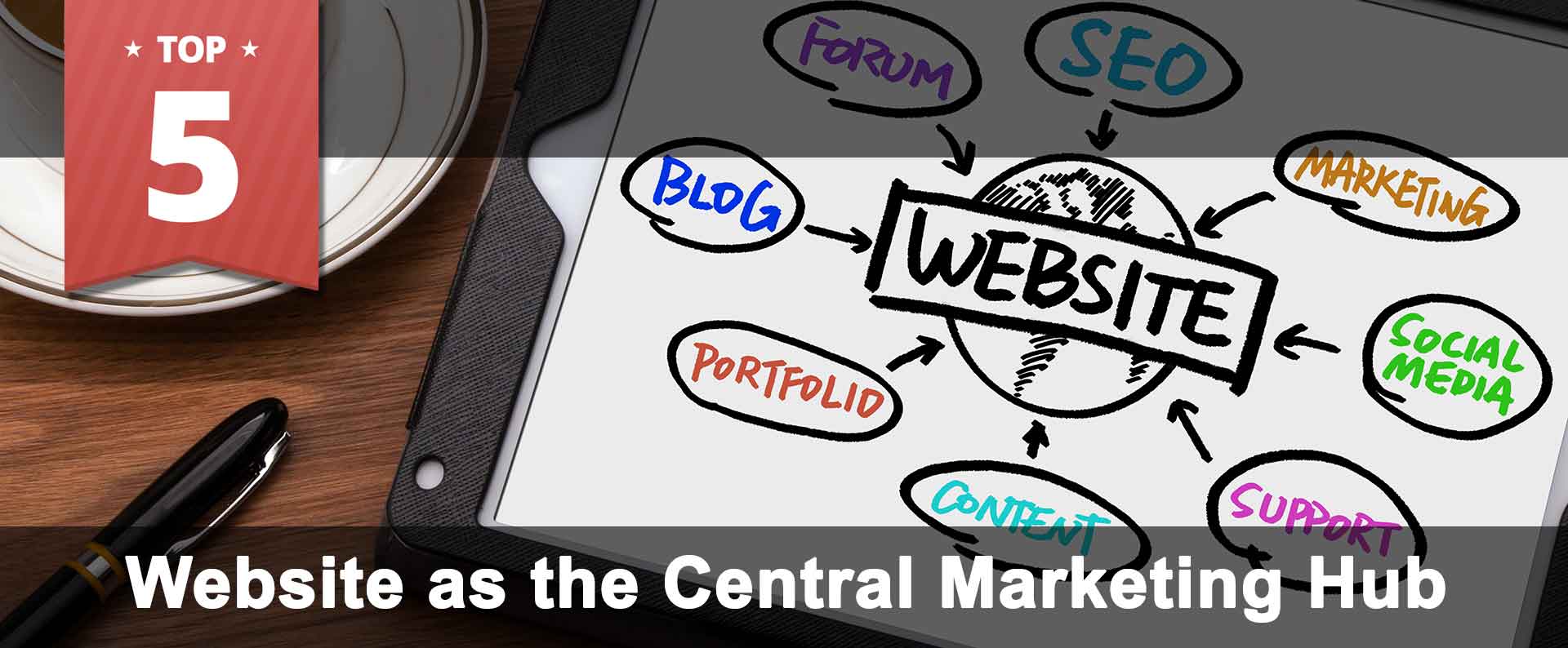In today's digital age, businesses of all sizes understand the importance of having an online presence. However, there is a misconception that a strong social media presence is enough to succeed online.
While social media is undoubtedly an important part of any digital marketing strategy, it is not a substitute for having a website.
In this article, we will discuss why it's important to have a website as the central hub of a company's marketing efforts versus just relying on social media profiles.
1. Control & Ownership
One of the main reasons why having a website is crucial is that it provides businesses with a level of control and ownership over their online presence that they simply cannot achieve through social media. With a website, businesses can create a unique brand identity, customize their design and layout, and control their content.
Social media platforms, on the other hand, can change their algorithms or policies at any time, potentially impacting a business's reach or ability to connect with their audience. Remeber MySpace? Social media platforms can go by the wayside, losing their audience, just as quickly as they gain popularity.
By having a website, businesses have complete control over their brand image and messaging, ensuring consistency and enhancing their overall marketing strategy.
2. Credibility & Professionalism
Another important aspect to consider is that a website is essential for establishing credibility and professionalism. While social media profiles can help build brand awareness, consumers expect businesses to have a website. The lack of a website can be seen as a red flag or a sign of unprofessionalism.
A well-designed, user-friendly website can help build trust and establish a professional image for a business, which can ultimately lead to increased sales and revenue.
A website allows businesses to showcase their products or services in a more detailed and comprehensive manner, providing potential customers with valuable information and building credibility.
3. Function & Flexibility
Additionally, a website provides businesses with more flexibility and functionality than social media platforms. With a website, businesses can create custom landing pages, offer e-commerce functionality, and integrate with a wide range of third-party tools and platforms.
While social media platforms offer some of these features, they are often limited in terms of customization and control.
A website allows businesses to create a tailored user experience, providing visitors with the information and resources they need to make informed decisions. This flexibility and functionality can greatly enhance a company's marketing efforts and improve overall customer satisfaction.
4. Visibility & Reach
Furthermore, a website provides businesses with greater visibility and reach than social media. While social media can be an effective way to connect with existing customers and build brand awareness, it is limited in terms of how it can attract new customers.
A website, on the other hand, can be optimized for search engines, allowing it to reach a wider audience and attract new customers who may not have found the business through social media.
By implementing proper search engine optimization (SEO) strategies, businesses can improve their website's visibility in search engine results, driving more organic traffic and potential customers.
5. Growth & Sustainability
Finally, having a website is essential for long-term growth and sustainability. Social media platforms can be highly effective in the short-term, but they are not a substitute for a strong, sustainable online presence.
A website provides businesses with a foundation for growth and can serve as a central hub for all of their online marketing efforts.
By utilizing marketing automation systems, and integrating various marketing channels, (such as social media profiles, email marketing campaigns, and content marketing strategies), businesses can streamline their marketing activities and ensure a cohesive brand experience across all channels.
This integration also allows for better tracking and analysis of marketing efforts, enabling businesses to make data-driven decisions and optimize their strategies for long-term success.
The Take Away
While social media is an important part of any digital marketing strategy, it is not a substitute for having a website. A website provides businesses with greater control, credibility, flexibility, functionality, visibility, reach, growth and sustainbility opportunities.
By leveraging the website as the primary marketing hub, businesses can establish a strong online presence, enhance customer experience, and drive growth in today's highly competitive digital landscape.













